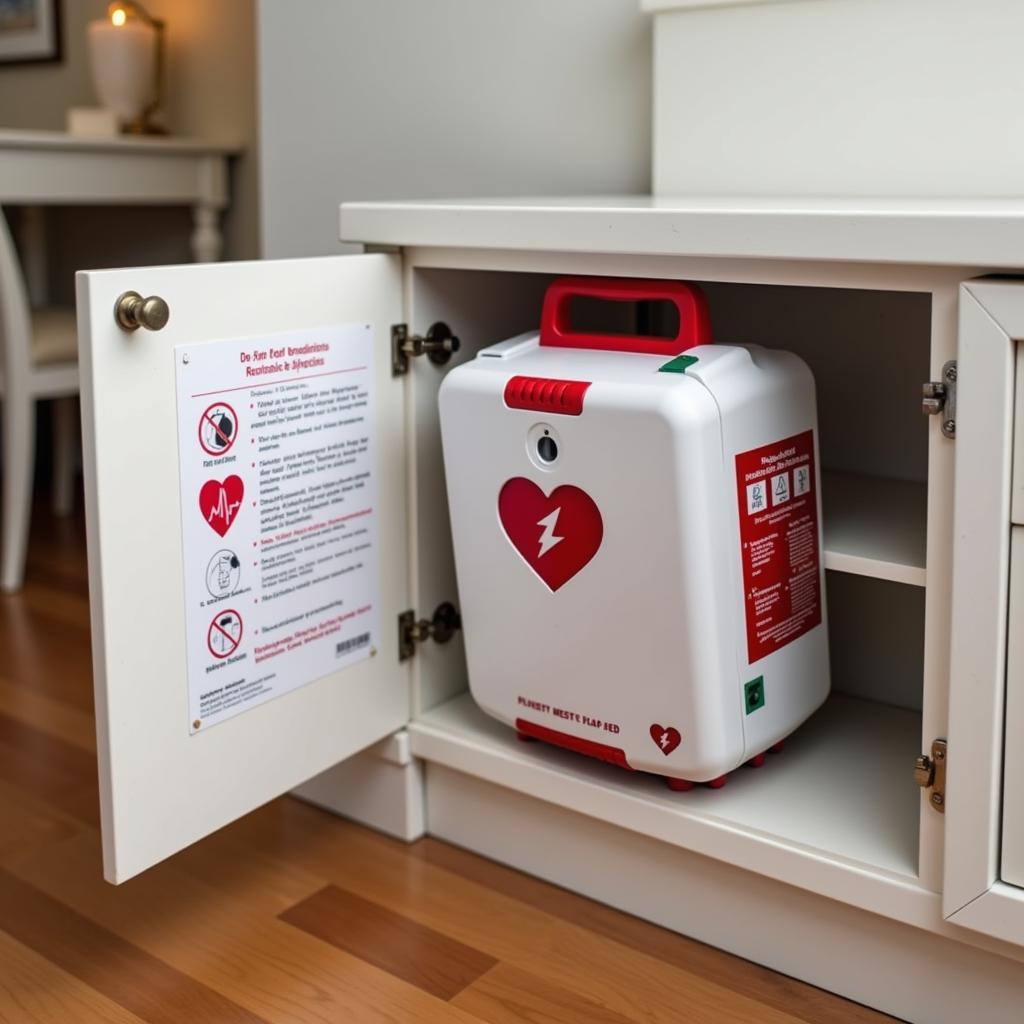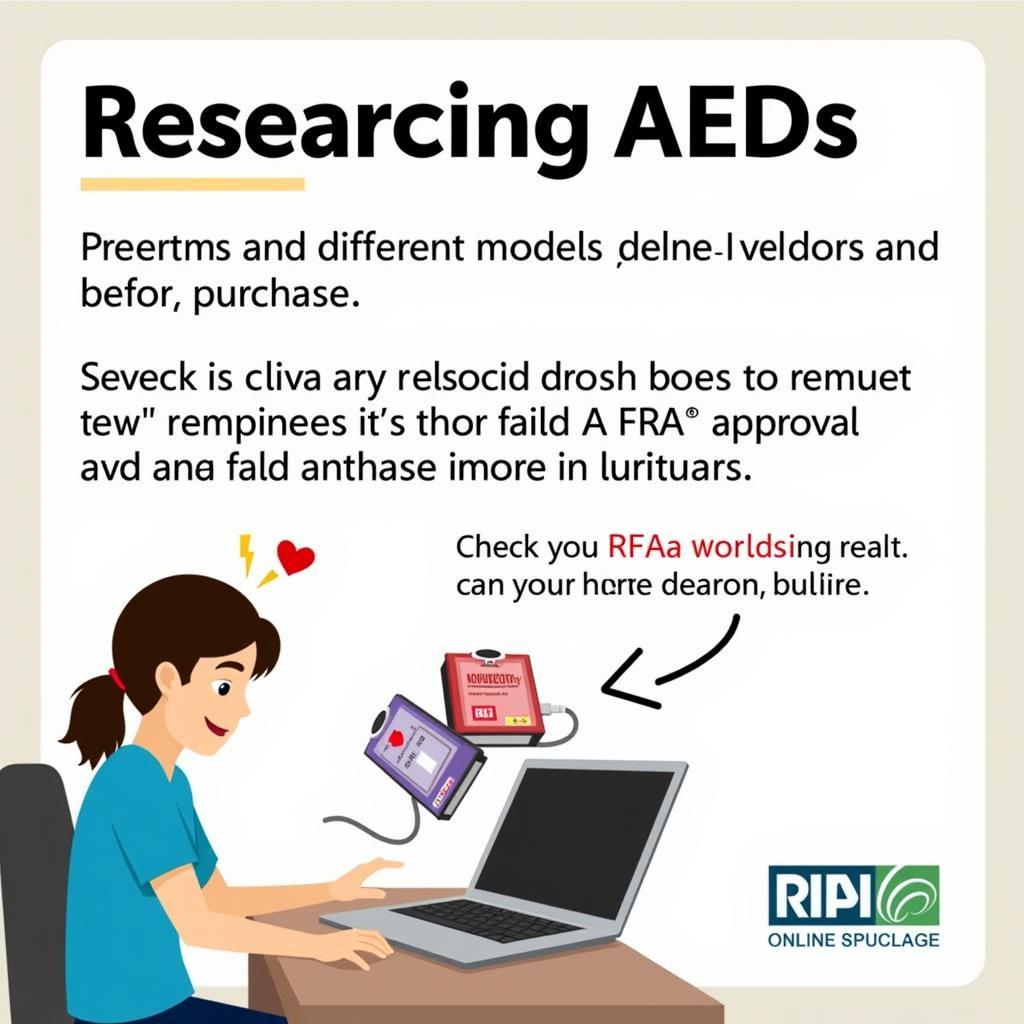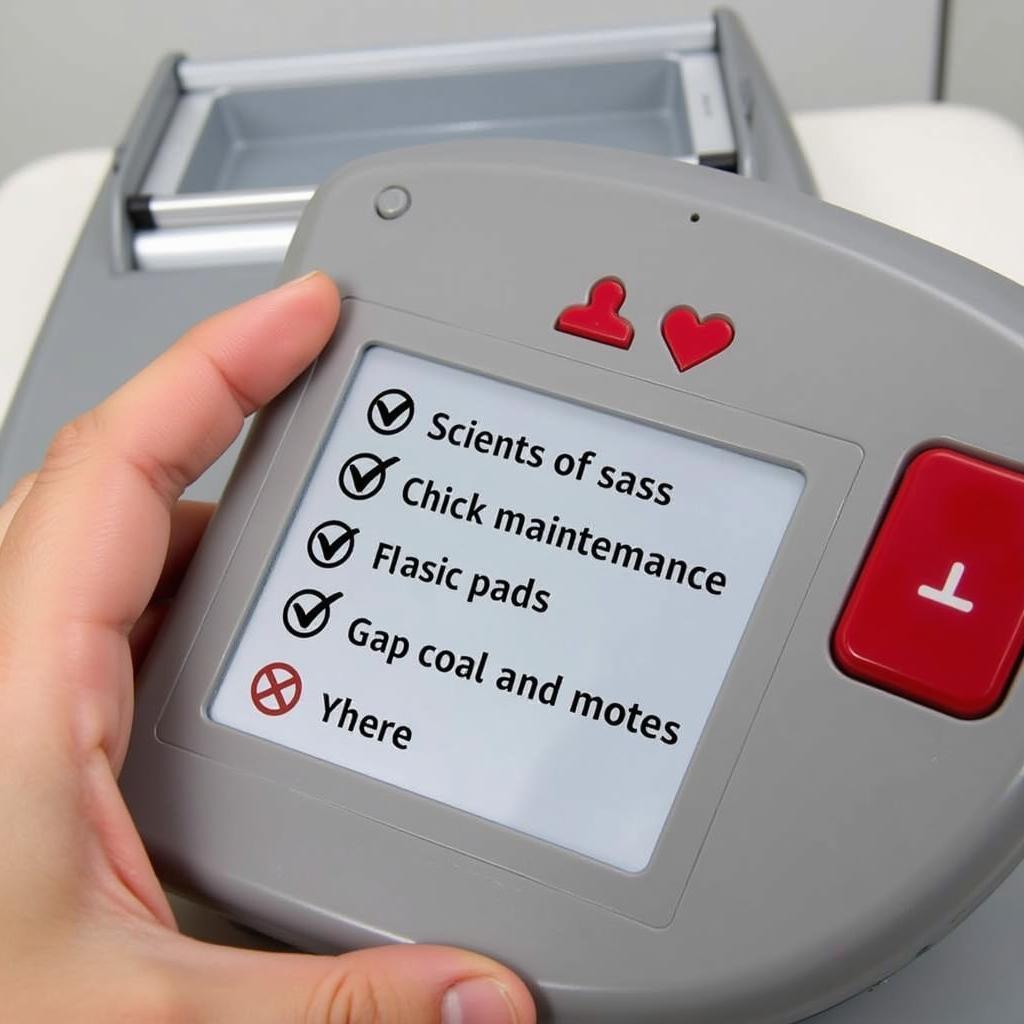Can You Buy an AED for Home? A Comprehensive Guide
November 10, 2024Can you buy an AED for home? Absolutely! More and more people are recognizing the importance of having quick access to an Automated External Defibrillator (AED) in their homes. This guide will delve into everything you need to know about buying an AED for home use, from understanding the different types available to the regulations and training involved.
Why Consider an AED at Home?
Sudden cardiac arrest (SCA) can happen anytime, anywhere. Having an AED readily available can significantly increase the chances of survival. While waiting for emergency services is crucial, every minute without defibrillation decreases the survival rate drastically. An AED at home bridges this critical time gap, providing immediate intervention and a better chance of a positive outcome.
Choosing the Right AED for Your Home
There are a variety of AEDs available on the market, and selecting the right one for your home can feel overwhelming. Consider factors such as ease of use, maintenance requirements, and features like visual and audio prompts. Some AEDs are specifically designed for home use with simplified instructions and intuitive designs.
Key Features to Look For:
- Ease of Use: The AED should be user-friendly, even for someone with no prior medical experience.
- Clear Instructions: Look for AEDs with clear visual and audio prompts that guide the user through the process.
- Automatic Self-Tests: The AED should regularly perform self-tests to ensure it’s always ready for use.
- Battery Life and Pad Expiration: Check the battery life and pad expiration dates and factor in replacement costs.
- Pediatric Pads: If you have children in your home, consider an AED that is compatible with pediatric pads.
 AED for Home Use
AED for Home Use
Understanding AED Regulations and Training
While you can buy an AED for home without a prescription, it’s essential to familiarize yourself with the regulations in your area. Some states may require registration of your AED with local emergency services. Training is highly recommended, although not always mandatory. Several organizations offer AED and CPR training courses, equipping you with the skills and confidence to use the device effectively in an emergency.
Where to Buy an AED for Home
AEDs can be purchased from various sources, including medical supply companies, online retailers, and even some pharmacies. When purchasing online, ensure the retailer is reputable and authorized to sell AEDs. Comparing prices and features from different vendors is also advisable.
Ensuring Quality and Authenticity:
- FDA Approval: Ensure the AED is FDA-approved.
- Warranty: Check the warranty offered by the manufacturer.
- Customer Support: Look for a vendor that provides reliable customer support.
 Buying an AED Online
Buying an AED Online
Can You Buy an AED for Home and Not Get Trained?
Yes, you can purchase an AED for home use without formal training. However, training is strongly encouraged. While AEDs are designed to be user-friendly, having hands-on training can boost your confidence and prepare you for the stress of a real-life emergency. Knowing how to perform CPR in conjunction with using an AED further increases the chances of survival.
Maintaining Your Home AED
Proper maintenance is crucial to ensure your AED is always ready for use. Regularly check the battery life and pad expiration dates. Replace these components as needed. Most AEDs also have self-test features that will alert you to any potential issues.
 AED Maintenance
AED Maintenance
Conclusion
Can you buy an AED for home? Yes, and it’s a decision that can potentially save a life. Investing in an AED and undergoing proper training provides peace of mind and empowers you to respond effectively during a cardiac emergency. While the initial cost might seem significant, the potential to save a loved one is invaluable.
FAQ
- Do I need a prescription to buy an AED? No, you do not need a prescription.
- How much does an AED cost? Prices vary depending on the model and features, typically ranging from $1,000 to $3,000.
- How often should I replace the pads and battery? Check the manufacturer’s recommendations, but typically pads expire every 2-4 years and batteries every 4-7 years.
- Where should I store my AED at home? Store it in a readily accessible location, clearly marked and known to all household members.
- What is the difference between an AED and CPR? CPR helps maintain blood flow, while an AED delivers an electric shock to restore a normal heart rhythm.
- Is there any financial assistance available for purchasing an AED? Some organizations offer grants or funding programs for AED purchases.
- Do I need to register my AED with local authorities? Regulations vary by state, so it’s best to check with your local EMS.
Common AED Questions and Answers
- Question: Can anyone use an AED? Answer: Yes, AEDs are designed to be used by anyone, even without formal training. However, training is strongly recommended.
- Question: What happens if I accidentally use an AED on someone who doesn’t need it? Answer: Modern AEDs analyze the heart rhythm and will only deliver a shock if necessary.
- Question: How long does it take for an ambulance to arrive? Answer: Response times vary depending on location, but can average 8-12 minutes or longer.
Further Reading and Resources
For more information on AEDs and related topics, you can visit the American Heart Association website or the Red Cross website.
Contact Information
For support or further questions, please contact us: Phone: 0963418788, Email: [email protected] or visit our office at 2M4H+PMH, Phường Nghĩa Thành, Gia Nghĩa, Đắk Nông, Việt Nam. We have a 24/7 customer support team.